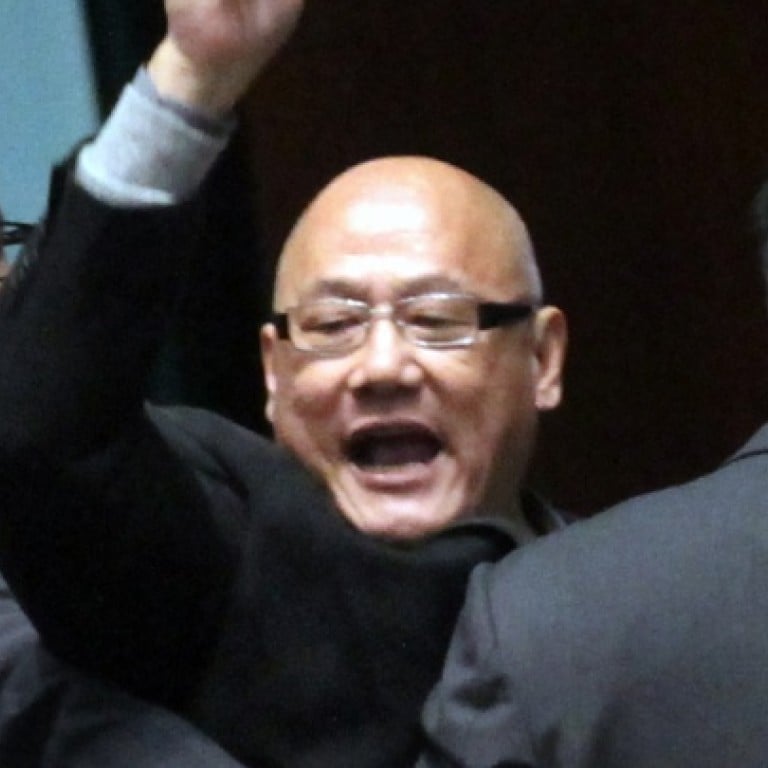
Filibustering legislators feel the heat
Alice Wu believes that the uncharacteristic 'olive branch' offered by filibustering legislators is as self-serving as it appears
I applaud People Power legislator Albert Chan Wai-yip for cracking the biggest political joke of the year. He was advocating the art of compromise publicly on the radio last week, offering the government the chance to stop the filibuster circus at the legislature should it agree to their watered-down "conditions". Isn't "compromise" a dirty word for Chan and his colleagues? Doesn't the entire premise behind their attacks on the Democratic Party lie in their abhorrence of the Democrats' willingness to compromise?
Our filibustering lawmakers must be pretty desperate. For radicals to extend an "olive branch" to the government in this way is incredible. Chan defended the offer to halt the political gridlock - from the same people who created it - by calling forth the oft-quoted Max Weber maxim - that politics is the art of compromise. That's just hilarious; Weber and Chan are as close in their political philosophies as chalk and cheese.
Weber sees that political action cannot be solely rooted in conviction, since one person's conviction can very well be another's anathema, while the radicals can't really see beyond their own convictions. Disagreeing with them inevitably results in insults - or objects - being hurled. Their mockery of the legislative process and deliberative politics, and their actions that they insist are justified as means to their ends (convictions), are nothing like how Weber sees politics as a vocation.
Perhaps British Member of Parliament Diane Abbott was right when she once said, "You can't defend the indefensible - anything you say sounds self-serving and hypocritical." The filibuster has drawn a lot of public criticism, and with the government's deadline of next Wednesday looming, the radicals' desperation to cut their losses is clear.
But negotiation has never been their forte, and it's no wonder that this "olive branch" is viewed with suspicion. An appeal for compromise and collaboration may just be too radical for these radicals.
So, little can be derived from Chan's supposed change of heart other than that the radicals also see their filibuster as a badly cast political bet. When real dollars are at stake, the public may not be so accommodating. The only thing the radicals can do is employ the tactics they are best at: blame anyone but themselves. Mastering the art of compromise may never come easily to the radicals, but they have elevated showboating while blame-shifting to an art.
The pan-democrats are clearly disinterested in cleaning up the mess for them this time. But this in no way indicates that filibusters will become a thing of the past; the current chief executive may well face at least one filibuster each year he is in office.
If a universal pension scheme can be used as an excuse for political shenanigans, filibusters and more are definitely in the works on the subject of universal suffrage. Even if this filibuster fails to win popular support, when it comes to the future of this city's democratic development, public sentiment can reverse just as quickly as Chan's uncharacteristic appeal for compromise.

